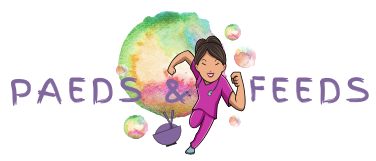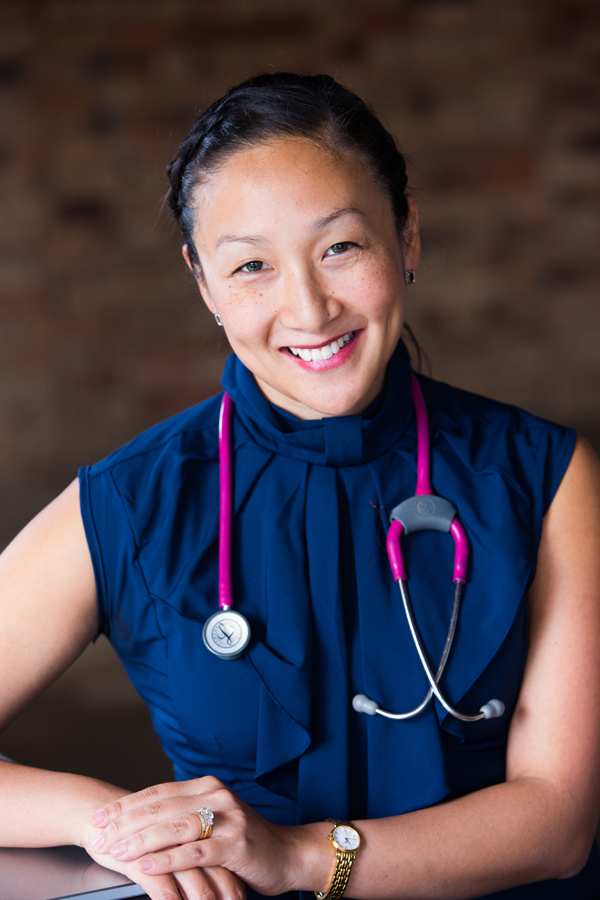Hello and WELCOME to “Adolescent Health Month” here at Dr Megs – Paeds & Feeds!!!
I know it is the 30th of July and NOT QUITE the start of the new month yet, but I am wa-AAAY too excited not to start this very (in my opinion) cool collection of new articles for all those parents out there who have TEENAGERS (or even “TWEENS” – coz near enough is close enough right?). My sisters have been asking me to write some articles about older kids for AAAGES – and here they finally are.
Our resident paediatric endocrinologist Dr Sarah, so kindly led me to this idea and gave us all a fabulous orientation with her double blog on “Puberty” a few weeks ago, and for the next month or so I am so chuffed to have the opportunity to collaborate with an amazing bunch of professionals who are keen to write for Paeds & Feeds and help us to help as many people out there as possible.
These super individuals are:
- Dr Jenni Silva – Paediatric psychologist from Brilliant Minds Psychology (in Brisbane) and
- Dr Tania Burgess – General practitioner with a special interest in Adolescent Health
Some of the fantastic topics that we will be blogging about in coming weeks are all about that difficult period of transition we call adolescence. These include:
- Transition to high school
- Management of period problems for girls
- Exam stress and anxiety for high school students
- How parents can help their teenager with exams and anxiety
- How to write a “Study Plan” and manage extracurricular activities with a case study
So we have an absolutely STELLAR line up in coming weeks for your reading amusement and pleasure – so sit back and take it all in.
Today we are kicking off with a problem that is incredibly common in teenagers and a source of much angst… ACNE.
ACNE
Hands up those of you who have had an important event come up sometime in your life where you have felt the need to look your best, only to have a massive zit come up right in the middle of your forehead (or worse still, a shiny one on the end of your nose) the night before…

Yup. Me too. We’ve ALL been there.
Spots, pimples, zits, acne…. Whatever you want to call it, acne is a scourge on adolescents everywhere with up to 90% of all teenagers affected at some stage of adolescence and anywhere between 20-25% of adults also affected (more common in women than men).
When I was a teenager, I had a forehead full of pimples and I was so self conscious about it that I grew my fringe down to hide it from view. I remember trying all sorts of lotions, creams and washes in a vain attempt to clear it up, but in reality it wasn’t until I was out the other side of puberty that the pimples eventually went away on their own.
Acne can be severe in some individuals and for these kids, it can have a huge impact on their quality of life, their self confidence and sometimes their mental state. If left untreated, more severe cases can lead to permanent scarring of the skin.[i]
What causes acne?
Right from the time we are born, our skin produces an oily secretion (called sebum) and continuously regenerates while shedding dead skin cells.
Sebum has a number of different functions including:
- Reducing water loss from the skin surface (and keeping the skin moisturised)
- Protecting the skin from infection
- A possible role in immune system regulation
Acne is a condition that occurs when the hair follicles become plugged/blocked with sebum from the skin’s sebaceous glands and dead skin cells (forming a comedo {sounds like some sort of large lizard… oh hang on… that’s a Komodo isn’t it? ;D} ).
If the follicle opening (pore) is completely blocked, the follicle wall may bulge and produce a whitehead. If the plug (of bacteria, oil and skin cells) is open to the surface, the top might darken on exposure to air (oxidising) and cause a blackhead. Pimples are raised red spots with a white centre that occur when the blocked hair follicle becomes inflamed or infected with bacteria.
Factors that can worsen acne
- During puberty, both boys and girls produce high levels of androgens (male sex hormones that include testosterone) which cause the skin’s oil glands to enlarge and produce more sebum. Hormone changes associated with the menstrual cycle or pregnancy can also trigger acne.
- Certain medications – eg corticosteroids, hormone medications (eg testosterone and some types of contraceptive pills in certain people, lithium)
- Stress and depression – can affect hormone levels and thus worsen acne
- Environmental factors like high humidity, pressure from headbands or chin straps that causes skin irritation
- Genetic factors – severe acne is more likely to run in families
Do certain foods cause acne?
I get asked this question ALL. THE. TIME.
“Does chocolate cause acne?” “Does fried/oily food cause acne?”
The answer to this question is not straight forward because it is difficult to prove a link between food and acne. Some sources say there is NO evidence to link diet to acne, and some say there is weak evidence.[ii]
Acne is reported to be less common in people who have a diet with a lower glycaemic index.[iii] There is some weak evidence to suggest that low-protein, low-fat and low-dairy diets can benefit acne sufferers and it this is thought to relate to the effects of these foods on insulin and insulin-like growth factor-1 (IGF-1).[iv] Insulin (that is released in response to eating food) causes an increase in male hormones (androgens), glucocorticoids (a type of steroid hormone that your body produces naturally) and growth factors (which increases skin cell turnover and oil production).
Acne severity[v]
| Mild | Primarily made up of non-inflamed lesions (comedones) that appear as blackheads or whiteheads. Some pimples might be present. |
| Moderate | Presence of both non-inflamed comedones and inflamed lesions including papules (raised red bumps) and a few pustules (pimples with a white top) |
| Moderate to severe | Characterised by comedones, pustules and papules. Cysts (pus-filled inflamed lesions bigger than 5mm in diameter) or nodules (cysts that have ruptured) may also be present |
| Severe | All of the above with the presence of numerous nodules and/or cysts. These are often painful and found on the face, neck, trunk and can seomtimes extend to the waistline |
TREATMENT
Selection of the most appropriate type of treatment for acne depends on how severe it is (see above table). There are some general principles of treatment however that apply to all cases of acne, regardless of severity.
- When possible avoid excessive humidity (eg tropical vacations, saunas…. living in Brisbane in summer etc)
- If you smoke – stop it! Asides from all the HUGE risks associated with smoking (and thus reasons to quit), nicotine worsens acne
- Try not to scratch or pick the spots – although acne is primarily an inflammatory condition, it is exacerbated by infection
- Sunlight (filtered through window glass) is anti-inflammatory and can help a bit but keep in mind that exposure to UV radiation results in premature ageing of the skin and can lead to skin cancer.
- Minimise the application of oils and cosmetics to the affected skin
Mild Acne
This can mostly be treated with topical treatments (lotions, gels, creams etc that are applied to the skin) and bought over the counter at a pharmacy without a prescription.
- Wash affected areas twice a day with a mild cleanser and water or an antiseptic wash
- Apply products to the whole affected area rather than just to individual spots
- Topical products might initially cause the skin to feel dry – especially in the first few weeks of use. The skin does adjust to this though
- Avoid oily cosmetics (eg foundation) and sunscreen, and apply an oil free moisturiser only if the skin is peeling
- It may take weeks or months to see a noticeable improvement
Some products that can be obtained in Australia without a script are:
- Antiseptic washes with triclosan or benzoyl peroxide eg Benzac AC Wash, Acnederm Wash
- Benzoyl peroxide preparations (gels, creams, lotions) such as Brevoxyl cream, Benzac Gel (varying strengths), Clearasil Ultra Acne Cream. These work in a few ways
- As a keratolytic – it pushes air into the follicle/pore to help break up the plug and wash it out
- As an antiseptic to reduce bacteria
- Reduces oil production and decreases inflammation
- Mild salicylic acid preparations – salicylic acid helps to slough/exfoliate dead skin cells and unplug follicles (eg Neutrogena Oil-free acne Wash)
There were some topical antibiotic preparations that were available in Australia on prescription (eg Eryacne, Stiemycin) that more recently have been discontinued. I believe Clindatech (clindamycin antibiotic solution) is still available however.
Topical retinoids are also available in Australia such as ReTrieve cream, Isotrex and Differin, but you would need to see your doctor to determine if these would be suitable for your child as they can be very harsh on the skin.
Moderate- severe acne
Usually moderate-severe acne treatment is started with some of products applied to the skin as listed above, but an oral medication may be added for a minimum of 3-6 months. It is important to remember that these medications are not without side effects and you should have a decent discussion with your doctor (and your child) about what the risks are before you decide to try any of them. Some of the medications that might be considered by your doctor are:
- Oral antibiotics (eg doxycycline, minocycline, erythromycin)
- An oral contraceptive pill (in females)
- Oral antiandrogens (eg low dose cyproterone – that comes in the form of an oral contraceptive pill on a private script)
- Short term use of an anti-inflammatory medication eg Nurofen
- Oral retinoids (eg isotretinoin)
Severe Acne
Kids who suffer from severe acne should really be under the care of a dermatologist (a doctor that specialises in looking after skin). Most patients will be managed with some type of oral medication and this might include (but not be limited to)
- Isotretinoin
- Antibiotics
- Oral antiandrogens
- Corticosteroids
And these might be used in combination with topical and other physical treatments (eg cryotherapy (ie freezing), laser therapy, microdermabrasion, steroid injections directly into lesions).
So I hope that this article (which I hoped to be short, but actually ended up pretty long) has given you the confidence to seek the help and opinion of your trusted family General Practitioner if your child is suffering from acne. Your GP will refer you (or your child) on to a specialist dermatologist (a doctor that only looks after skin) if it is necessary.
There are many treatments out there, many of which are very well tolerated, and can put a hasty end to a condition that can be really detrimental to some kids’ quality of life.
Stay tuned for more great articles on ADOLESCENT HEALTH TOPICS in the weeks to come.
Until next time!!
xxDr Megs
[i] Kilkenny M, Merlin K, Plunkett A, et al. The prevalence of common skin conditions in Australian school students: acne vulgaris. Br J Dermatol 1998;139:840-845.
[ii] Oakley A. Acne Management. Dermnet NZ. https://www.dermnetnz.org/topics/acne-management/ . Posted 1999. Updated February 2014. Accessed 24 June 2018.
[iii] Kucharska A, Szmurlo A, Sinska B. Significance of diet in treated and untreated acne vulgaris. Postepy Dermatol Alergol 2016;33(2):81-86.
[iv] Pappas A. The relationship of diet and acne. Dermatoendocrinol 2009;1(5):262-267.
[v] Warner GT, Plosker GL. Clindamycin/benzoyl peroxide gel: a review of its use in the management of acne. Am J Clin Dermatol 2002;3:349-60.

